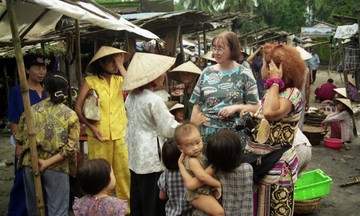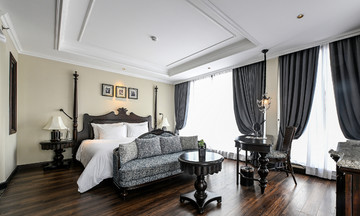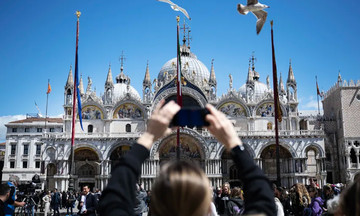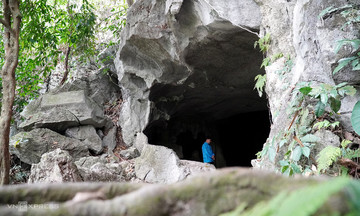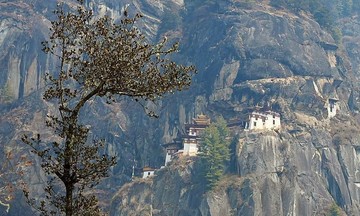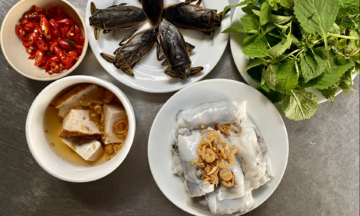"The most crucial factor for a US visa application is a strong profile. Even a US$50,000 bond won't guarantee approval if the application is weak," commented Vu Quynh Hoa, deputy director of Con Ga Vang Resort in Ninh Thuan, who has been granted a US visa four times, regarding the new US visa policy.
On 4/8, the US announced a pilot program requiring visitors from countries with high visa overstay rates or insufficient screening information to submit a bond of up to US$15,000 when applying for a visa. This measure aims to address the issue of visa overstays.
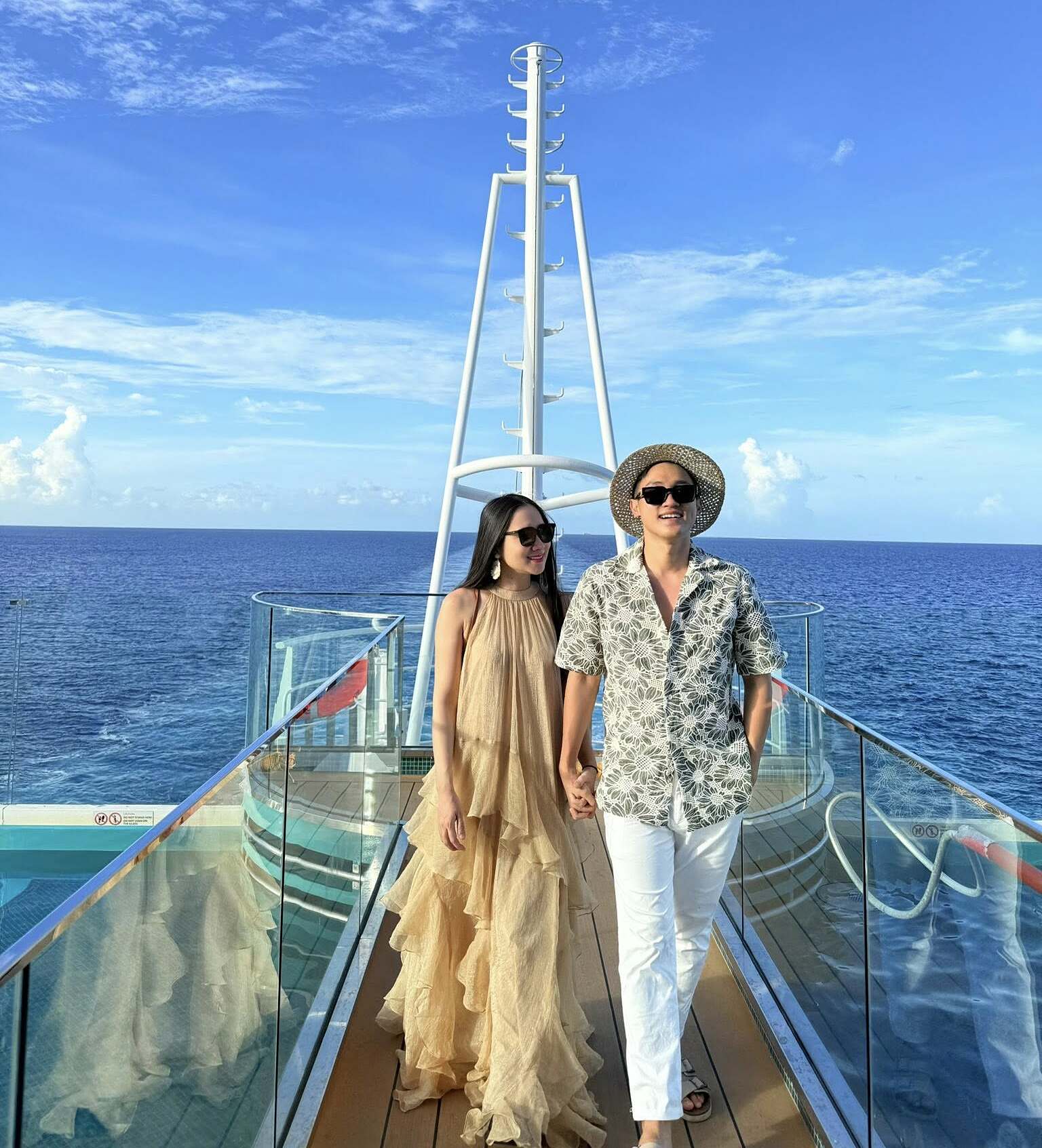 |
Vu Quynh Hoa and her husband take a photo at a seaside resort in Miami, US, in June. Photo: NVCC |
Vu Quynh Hoa and her husband take a photo at a seaside resort in Miami, US, in June. Photo: NVCC
The pilot program will be implemented from 20/8 and last for about a year. Consular officers will choose one of three bond amounts – US$5,000, US$10,000, or US$15,000 – for applicants subject to the requirement, with a recommended minimum of US$10,000. The bond will be refunded if travelers leave the US within their visa validity period. The US Department of State stated it has listed criteria for identifying affected countries. This list may be updated in the future.
Pham Anh Vu, deputy general director of Viet Travel, said Vietnam is not currently on the list of countries requiring a visa bond. However, if this policy is applied to Vietnamese citizens, potential travelers to the US will face challenges, but there will also be positive aspects.
The high bond amount (US$5,000-US$15,000) will significantly increase the cost of traveling to the US, affecting families or those with limited finances, and potentially decreasing the number of US tour registrations. This could lead to reduced revenue for travel agencies specializing in US tours and decrease the competitiveness of the US as a destination compared to places like Europe.
However, according to Vu, some Vietnamese travel companies already require deposits, ranging from tens to hundreds of millions of Vietnamese dong (VND), for tours to the US, Australia, and Canada as a precaution against travelers absconding or overstaying their visas. If customers breach the agreement, the deposit is not refunded, or the company uses it as a penalty/down payment for compensation to foreign partners.
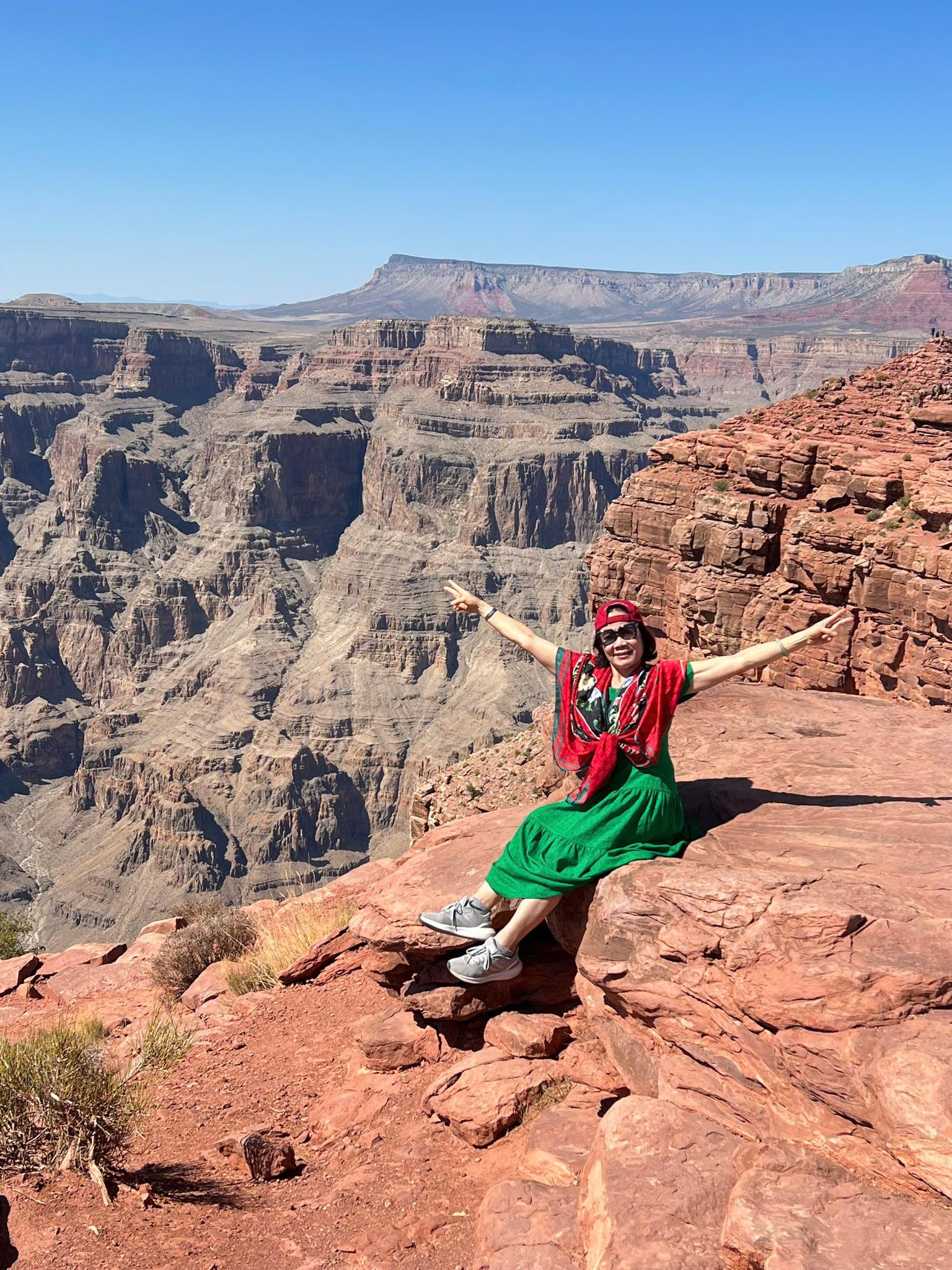 |
Vietnamese tourists visit the Grand Canyon, a popular tourist destination in the US, in July. Photo: Pan American |
Vietnamese tourists visit the Grand Canyon, a popular tourist destination in the US, in July. Photo: Pan American
"This bond policy can contribute to a more transparent and clear visa application process," Vu said. The policy can also help reduce the subjectivity of consular officers' visa decisions, decrease the risk of bribery and brokering, and better categorize travelers. It won't significantly impact genuine tourists with strong finances.
Ngo Van Thoa, director of Pan American Travel, believes that if Vietnam is included in the list, the policy "won't significantly affect" genuine travelers to the US. Thoa explained that US-bound travelers usually have good financial standing and prior experience traveling to countries with stricter visa requirements, such as those in Europe and Australia. Therefore, an additional US$15,000 bond is unlikely to deter them. However, the policy might affect the travel experience and cause some to postpone their trips.
According to the Pan American director, one of the main reasons for the decrease in Vietnamese travelers to the US this year is the global economic downturn, leading to tighter spending habits. In quarters I and II, the number of customers purchasing US tours at his company remained relatively stable, but in quarter III, there was a slight decrease compared to the same period in 2024.
However, both Thoa and Hoa believe there's a "high probability" Vietnam will not be included on the list due to its low visa overstay rate.
According to the US government's 2023 "Entry/Exit Overstay Report" (the 2024 report is not yet available), Vietnam had 68,014 entries and 1,382 overstays, representing over 2%. Vietnamese tourism experts consider this rate low compared to the global average. In Asia, Myanmar and Laos had the highest overstay rates in 2023, at 27% and 34.7%, respectively. Thailand and China had overstay rates of 3.31% and 3.67%, respectively, both higher than Vietnam.
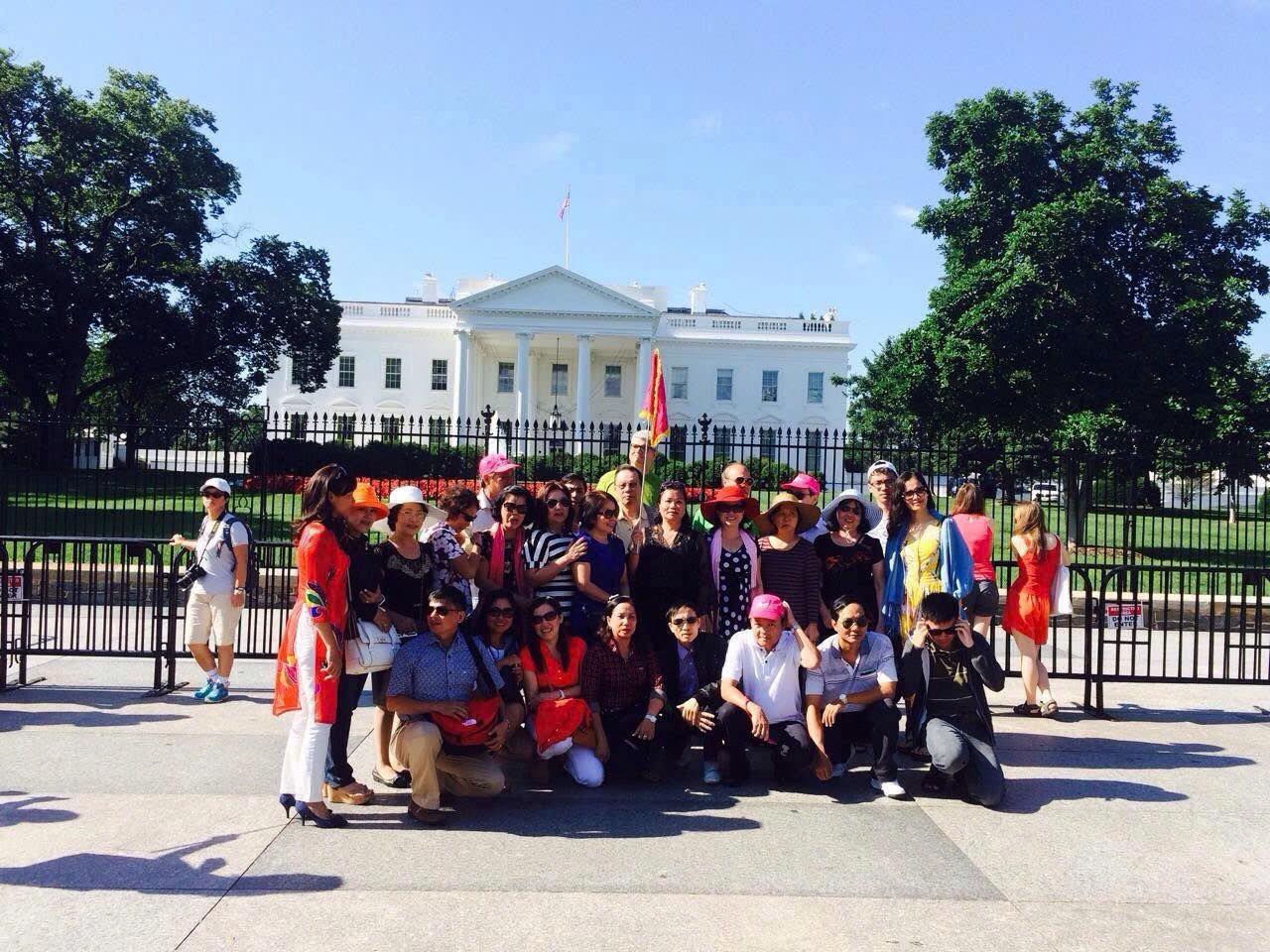 |
A group of Vietnamese tourists takes a photo in front of the White House, US. Photo: DLV |
A group of Vietnamese tourists takes a photo in front of the White House, US. Photo: DLV
Vu from Viet Travel believes that if the new policy is applied to Vietnam, travel companies need clear and transparent information about the bond refund process to facilitate smooth application procedures and access to information for travelers, ensuring the policy's effectiveness.
According to Hoa, a Vietnamese traveler who has visited over 100 countries and territories and has experience applying for visas in over 50 destinations, the bond policy can also be advantageous.
"For strong visa applications where the consular officer still has some reservations, the bond can further solidify their confidence, increasing the likelihood of visa approval," Hoa said.
Phuong Anh



